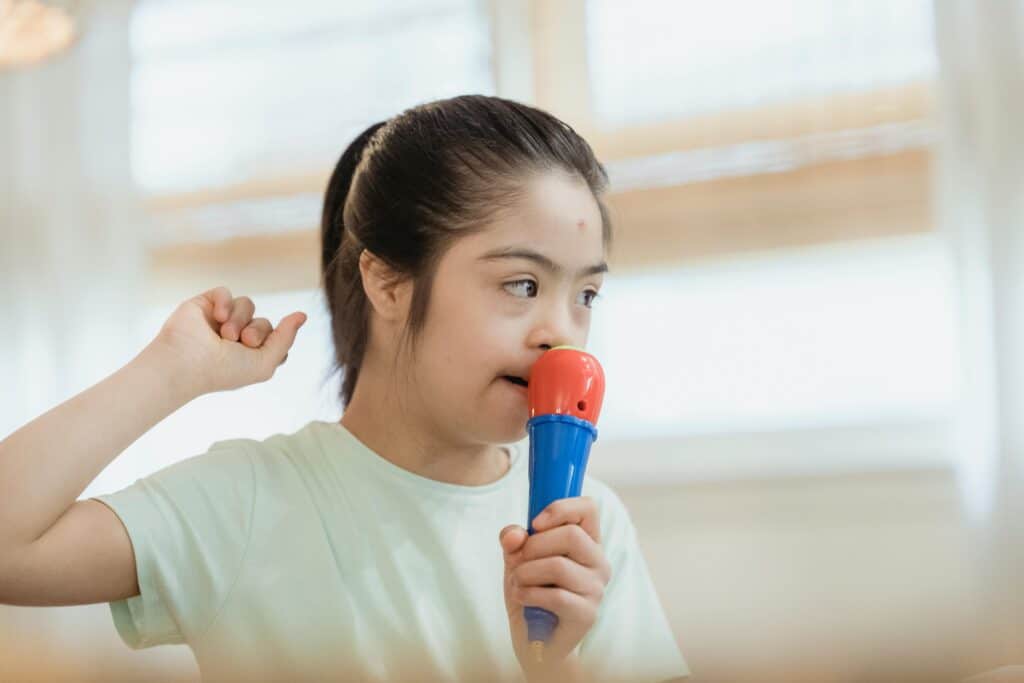Introduction
Have you ever had trouble putting your feelings into words? Some people find it hard to understand or describe their emotions. This condition is called alexithymia. It is a mental health condition that affects a person’s emotional awareness and response. Scientists believe that environmental factors, genetic factors, and brain injuries may all play a role in the development of alexithymia.

Nashville Mental Health
What is Alexithymia and Understanding What it Does?
Alexithymia is a condition where a person struggles with emotional expression and emotional awareness. It is not a mental disorder itself, but it is linked to mental disorders like depressive disorder, anxiety disorders, obsessive-compulsive disorder, and post-traumatic stress disorder (PTSD). People with alexithymia may have trouble recognizing their own emotional experiences and emotions in others.
Signs and Symptoms of Alexithymia
People with alexithymia may experience:
- Difficulty identifying emotions
- Trouble describing feelings to others
- Limited emotional vocabulary
- Poor emotional recognition in others
- Lack of facial expressions or body language in emotional situations
- Difficulty with interpersonal relationships
The Role of Alexithymia in Mental Health
The impact of alexithymia is significant in mental health disorders. It is common in people with psychiatric conditions, neurodevelopmental disorders, and neurological disorders. It is also seen in substance use disorders, panic disorder, and borderline personality disorder. People with alexithymia often experience depressive symptoms and negative emotions but have trouble expressing them.
Causes and Risk Factors
The risk factors for alexithymia include:
- Genetic factors – Family history may play a role.
- Environmental factors – Adverse childhood experiences and trauma can contribute.
- Brain injuries – Damage to the cingulate cortex or insular cortex may lead to alexithymia symptoms.
- Autism spectrum disorder – Many people with autism also have alexithymia in autism.

Is Alexithymia Curable?
One of the most common questions people ask is whether alexithymia is curable. Currently, there is no known cure for alexithymia, as it is often considered a stable personality trait rather than a temporary condition. However, while a complete cure may not be possible, individuals can learn emotion regulation strategies and work with a mental health professional to improve their ability to recognize, understand, and express emotions.
Therapies such as Cognitive Behavioral Therapy (CBT) and mindfulness-based interventions have shown promise in helping people develop emotional awareness. Through structured exercises, individuals can learn how to identify bodily signals associated with emotions and practice expressing their feelings in a safe environment. Over time, many people with alexithymia experience improvement in emotional recognition, though their natural inclination may still be to suppress or ignore emotional cues.
Is Alexithymia a Form of Autism?
Many people wonder whether alexithymia is a form of autism. The answer is no—alexithymia is not a type of autism. However, research suggests that there is a strong relationship between alexithymia and autism spectrum disorder (ASD). Studies have shown that adults with autism spectrum disorder often have elevated alexithymia. However, not all autistic individuals have alexithymia, and not all people with alexithymia are autistic.
The link between alexithymia and autism likely stems from differences in brain function and neural correlates that affect emotional awareness and interoceptive awareness. Some autistic individuals may struggle with recognizing and interpreting emotions due to difficulties in social communication, which can overlap with alexithymia traits. However, alexithymia is also present in people without autism, particularly those with traumatic brain injury, PTSD, or depressive disorder.
What is the Root Cause of Alexithymia?
The root cause of alexithymia is complex and involves a mix of genetic factors, environmental factors, and brain structure differences. Some researchers believe that genetic predisposition plays a significant role, as alexithymia appears to run in families. Neurodevelopmental disorders such as autism and ADHD also show a higher prevalence of alexithymia, suggesting that brain wiring influences emotional processing.
Environmental factors, including adverse childhood experiences, neglect, and trauma, can also contribute to the development of alexithymia. Children who grow up in environments where emotions are not openly discussed or validated may struggle to develop a strong emotional vocabulary. Similarly, individuals who have experienced significant trauma, such as abuse or war-related PTSD, may unconsciously suppress emotions as a coping mechanism, leading to alexithymia symptoms.
Additionally, neurological disorders and brain injuries can lead to alexithymia. Studies indicate that damage to the insular cortex, cingulate cortex, or prefrontal regions of the brain can impair emotional awareness. Traumatic brain injury (TBI), strokes, and other neurological conditions have been linked to alexithymia in patients, further supporting the role of brain function in emotional processing.
How is Alexithymia Measured?
Doctors and researchers use special tools to measure alexithymia levels. One of the most used tools is the 20-item Toronto Alexithymia Scale (TAS-20). This test measures different dimensions of alexithymia, such as the ability to describe emotions and identify bodily signals.
Other tests include:
- Alexithymia Scale – Used to assess the feature of alexithymia and its severity.
- Alexithymia Questionnaire – A tool designed for clinical and research settings to evaluate emotional difficulties.
- Item Selection from TAS-20 – This allows for a refined assessment of alexithymia traits in different populations.
Systematic reviews and meta-analysis of these assessment tools suggest that people with clinically significant alexithymia score high on measures related to emotional awareness, emotional expression, and interpersonal relationships.
Emotional Processes and Alexithymia
Emotions play an essential role in human life. People with alexithymia may experience differences in alexithymia when processing emotions. Some research shows that neural correlates in the brain affect their emotional processes and emotional reactions.
The attention-appraisal model suggests that alexithymia affects how people attend to and interpret emotions. People with alexithymia may have difficulty connecting bodily signals with emotions, leading to trouble identifying positive emotions and negative emotions.
Studies in affective science indicate that people with alexithymia show reduced autonomic responses to emotional stimuli. This means they may not experience strong physical reactions (like a racing heart or sweaty palms) when faced with emotionally charged situations.
Furthermore, people with alexithymia often struggle with emotion regulation strategies, meaning they may suppress emotions instead of expressing or managing them effectively. This can lead to increased stress, anxiety, and challenges in daily life.
The Impact of Alexithymia on Relationships
Since alexithymia affects emotional expression, it can make interpersonal relationships difficult. People with alexithymia may struggle to express love, joy, or sadness, which can cause problems with family, friends, and partners. The association between alexithymia and social difficulties is often studied in psychology and affective science.
Nashville Mental Health
Alexithymia and Psychiatric Disorders
Alexithymia in patients with psychiatric disorders is common. It is found in conditions such as:
- Depressive disorder – People with depression may have alexithymia traits.
- Posttraumatic stress disorder (PTSD) – The link between alexithymia and PTSD is well-documented.
- Obsessive-compulsive disorder (OCD) – Some people with OCD also have alexithymia construct.
- Panic disorder – Emotional difficulties are present in some panic disorder cases.
The Role of Alexithymia in Physical Health
Some psychosomatic patients experience somatic symptoms, where emotional distress turns into physical pain. Clinical observations suggest that alexithymia is linked to conditions such as chronic pain and heart disease.
Treatment and Coping Strategies
There is no direct cure for alexithymia, but some interventions on alexithymia can help:
- Emotion regulation strategies – Learning how to recognize and express emotions.
- Therapy with a mental health professional – Working with healthcare professionals can improve emotional awareness.
- Mindfulness and emotional training – Practicing mindfulness can enhance emotional recognition.
- Cognitive Behavioral Therapy (CBT) – Helps people develop emotional skills.
How Common is Alexithymia?
The prevalence of alexithymia varies. Studies show that about 10% of the general population may experience it. It is more common in people with mental disorders and those with traumatic brain injury.
Famous Researchers in Alexithymia Studies
Several scientists have contributed to the study of alexithymia, including:
- Taylor GJ – Known for his work on the model of alexithymia.
- Bagby RM and Parker JD – Developed the Toronto Alexithymia Scale.
- Sifneos PE – First introduced the term alexithymia.
- John Case Nemiah – Studied alexithymia symptoms.
Conclusion
Alexithymia is a condition where people have trouble understanding and expressing their emotions. It is linked to various mental health disorders, including autism spectrum disorder, PTSD, and depressive disorder. Although there is no cure, treatment with mental health professionals and therapy can help improve emotional awareness. Understanding alexithymia can lead to better support and improved emotional well-being.

Frequently Asked Questions (FAQs)
1. Can alexithymia be diagnosed by a doctor?
Yes, mental health professionals can diagnose alexithymia using standardized tests like the 20-item Toronto Alexithymia Scale (TAS-20) and clinical interviews to assess emotional awareness and expression.
2. Can people with alexithymia feel emotions?
Yes, people with alexithymia do feel emotions, but they struggle to recognize, interpret, and express them. This difficulty can lead to emotional detachment and social challenges.
3. Is alexithymia genetic?
Research suggests that genetic factors play a role in alexithymia. It can run in families and is often linked to neurodevelopmental disorders like autism and ADHD.
4. Can therapy help someone with alexithymia?
Yes, therapy such as Cognitive Behavioral Therapy (CBT), mindfulness-based interventions, and emotional coaching can help individuals develop better emotional recognition and expression skills.
Nashville Mental Health
5. What mental disorders are associated with alexithymia?
Alexithymia is commonly associated with depressive disorder, post-traumatic stress disorder (PTSD), borderline personality disorder, substance use disorders, and anxiety disorders. Visit SAMHSA or contact us today for more information.









